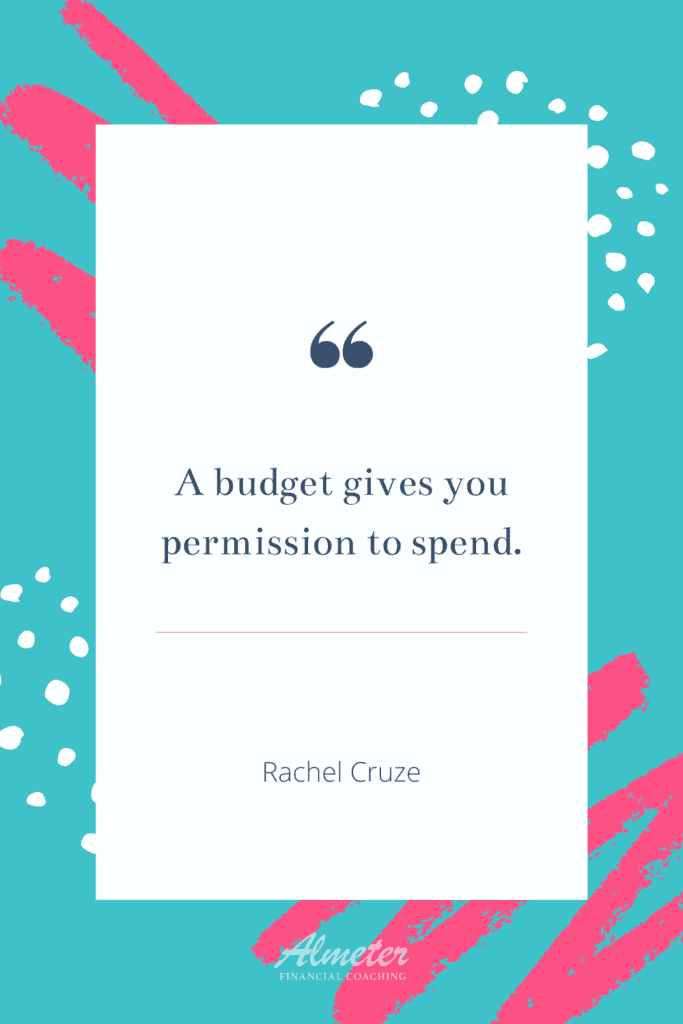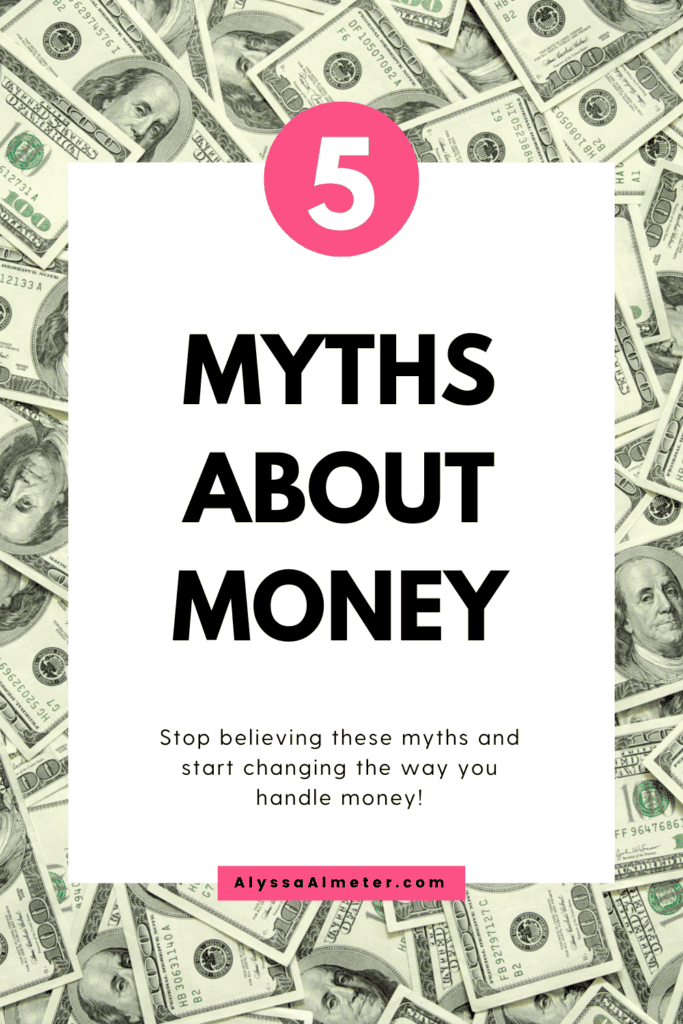This post contains affiliate links. As an Amazon Associate I may earn from qualifying purchases at no additional costs to you. Please see the Policies pages for more info.
Common Money Myths
Are your negative thoughts about money preventing you from building a savings or keeping you in debt? The things you are telling yourself or hearing from other people could be money myths.
You have probably said these things so many times that it feels like the truth. But in this post I’m going to share 5 common money myths and why they are not true!
Money Myth #1: I’m Not Good With Numbers
Everyone has their strengths. Some love working with numbers (me…surprised?) and some don’t. That is fine but that doesn’t mean you can’t do a budget each month. It is simple math that even my first grader can do.
Even though I do love numbers I still use the EveryDollar budgeting app. I love this app because it is simple to use and it does all the math for me! Just because I love working with numbers, it doesn’t mean I always want to do math in my head. This mama has other things that are using her brain power!
Money Myth #2: I Can’t Budget on Irregular Income
If you are self-employed or work on commission, having irregular income is part of the territory. It does make budgeting a little more challenging since your income is not the same every month but it’s not impossible. Time and consistency will make it easier as you go. Here are a few tips to get started:
- Review pay stubs from the last 12 months and find the lowest monthly estimate. Use this number to estimate your income for the month. Make sure you take into account the nature of your job, such as seasonal fluctuations. Your lowest estimate is a baseline. Any money you earn in addition to that is extra and can be used towards sinking funds, savings goals or paying off debt!
- List your expenses, prioritizing essentials first. These include food, utilities, housing and transportation. Then include giving, savings goals and debt reduction goals. Once those categories are covered then move on to non-essentials like monthly subscriptions. Remember that if your income is changing each month then your expenses should too. Completing a zero-based budget each month will give you a clear visual of your income and expenses.
- Update budget regularly throughout the month and adjust as needed. If you earned more than originally planned then include that amount in your budget.
Money Myth #3: Budgets Are Restrictive
If you are a natural spender or free spirit when it comes to money then you probably think budgeting is restrictive. The thought of sticking to a money plan doesn’t give you the freedom to live however your heart desires. Or does it? What if you thought of it as giving you MORE freedom?
Rachel Cruze says, “A budget gives your permission to spend.” By making a clear plan each month and allowing yourself some personal spending money, you can spend money without guilt while still tackling your big money goals. You want a $5 coffee? No problem as long as it has already been planned ahead of time.

Money Myth #4: Debt Is a Part of Life
Society and marketing campaigns for credit cards have done an excellent job at making us believe that debt will always be a part of our life or that it is the only way to get ahead. Don’t buy into these money myths! We are all told starting from our teenage years that we need to “build our credit” to be able to have anything in life. Between credit cards, car loans and student loans, we have all fallen into this debt trap.
But that doesn’t mean we have to stay there. Going into debt is a CHOICE. Which means we can also CHOOSE to get out of debt and stay out of debt! With intention and the right plan you CAN get out of debt.
Money Myth #5: Money is Evil
You are probably familiar with the saying “money is evil” or “money is the root of all evil.” It’s one of the most commonly used money myths that is misused. The Bible verse from 1 Timothy 6:10 actually says, “for the love of money is the root of all sorts of evil.” This is often taken out of context. It doesn’t mean you can’t have or want more money. It simply means don’t put your love for money above God.
Money can’t be evil because money is amoral, meaning it is neither good nor bad. Money is just a tool. A tool that we all use and need. Zig Zigler said, “Money isn’t the most important thing in life but it’s reasonably close to oxygen on the ‘gotta have it’ scale.”
Having more money doesn’t make people evil or bad. In fact, it allows you to have a greater impact on the world through giving.
Building Financial Confidence
James Clear, author of Atomic Habits said “the beliefs you have about yourself can drive your long-term behavior.” If you truly want to have financial freedom and confidence then you first have to BELIEVE it is possible!
This won’t necessarily happen right away. I listed the 5 common money myths so you can start by identifying what thoughts you have been holding on to. Continuing to take small steps to improving your finances will help you free yourself from those myths.
If you’re not sure how to get started then download my free Financial Wellness Checklist. It will provide you with various action steps (no you don’t have to do them all at once) that will help you manage your money better. As you make progress with your Financial Wellness Checklist you will begin to see how these thoughts are just money myths!
Related Articles
How a Zero-Based Budget Can Build Money Confidence
Make a Budget: 5 Simple Steps To Get Started
How to Budget While Living Paycheck to Paycheck
8 Money Habits of Financially Successful Women


